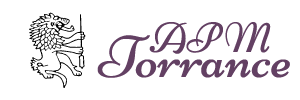Frequently Asked Questions
After that, acupuncture is hardly noticeable. This is because acupuncture needles are made of high-grade stainless steel, specially engineered for flexibility and smooth insertion.
If the first thing you think about when you hear the word “needle” is getting a shot at the doctor’s office, we’d like you to consider this: acupuncture needles are so thin that several of them can be inserted in a hypodermic needle! Also, consider that the medicine being injected through a hypodermic needle can often cause additional discomfort.
After a significant injury, the recommended treatment frequency is 2-3 visits per week, for 4-6 weeks. Once the patient begins to show improvement, the number of treatments is gradually reduced until full recovery is reached.
We accept most Insurance: Blue Cross, Blue Shield, Aetna, Cigna, Optum Health, Pacificare, ILWU, American Specialty Health, Kaiser and many more. See complete list of Worker’s Compensation & Insurances we accept.

